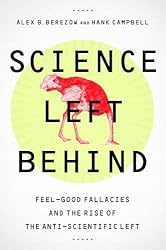 If you read the Tampa Bay Times last week you may have chuckled at something unsurprising to you: a lot of the locally sourced organic food in restaurants food critic Laura Reiley checked out was nothing of the kind: Florida blue crab imported from the Indian Ocean, blackberries from Mexico, you name it.
If you read the Tampa Bay Times last week you may have chuckled at something unsurprising to you: a lot of the locally sourced organic food in restaurants food critic Laura Reiley checked out was nothing of the kind: Florida blue crab imported from the Indian Ocean, blackberries from Mexico, you name it.
Really? Customers thought they were getting all this exotic stuff year round while paying the same price? They sure did, and after reading Reiley's article, I could almost hear the lamentations from true believers -- I paid for self-identification and now it has been exposed and I can't pretend any more. How many cleanses will they have to do with stuff they bought from Gwyneth Paltrow to get that conventional food out of their systems?(1)
The biggest concern for food elites like Tom Colicchio and the groups that fawn over celebrities who check off all their status boxes; no one got cancer, or had a decline in nutrition, or noticed a difference in taste at all, because they were eating conventional food that wasn't grown a mile away.
There's a simple reason for that. It is just a process, or marketing, or both, there is no real difference in the food.(2) You may not be able to be buried in an Environmental Working Group graveyard if conventional food passes your lips, but that is just their particular theology.
Customers certainly aren't to blame, they are the victims, they paid their money and they want their moral satisfaction. And the organic food industry can't really be blamed, they have a market willing to overpay for their process and cater to it and others jumped in. Yay capitalism.(3) Really, the only ones who can be criticized are the restaurants, because they were knowingly lying about what they were selling. But the fact is customers couldn't tell, and thus that farmhouse-industrial-chic, locally-grown, non-bST, shade-tree, organic, holistic, free-trade, non-GMO, hand-crafted-by-a-yogic-flying-instructor writing on the chalkboard made no difference to anyone.
People are being robbed, scientifically and ethically and literally. If you eat food from a restaurant with those touchy-feely labels on them, you are being lied to every day. As Reiley notes, because they are just marketing claims, they mean anything people want them to mean. So if you are in Florida and the quail is from Wyoming, that is still locally sourced, the restaurant just expanded its definition of local.
There is no reason they can't. Once organic became successful with an arbitrary process, organic pesticides instead of synthetic ones, organic except for the dozens of synthetic ingredients exempted by organic food lobbyists, it was open season on labeling. Caveat emptor. The USDA wants to rein in organic claims, but readers of the American Council on Science and Health can guess who objects to that; organic lobbyists.
Obviously, one piece of investigative food journalism likely won't change anything except at the restaurants called out in the article. Lots of people will still overpay for lots of things, including intellectual placebos like that they are better parents buying organic food. Companies don't just sell products, they also sell peace of mind, they sell status, but if you are going to blatantly bait-and-switch customers, at least do a better job of hiding the evidence. Much of the 'fraud to table' Reiley found she was able to just see on things like cans. To really make the case, she also took samples and the Times had them DNA tested by scientists at the University of South Florida.
Why didn't 60 Minutes ever think of that? Because Fenton Communications and the Natural Resources Defense Council, which have foisted off any number of anti-science scams on the public, didn't tell a producer there to do it, those groups are getting paid to promote organic fluff.
Reiley's investigative journalism should be in contention for a Pulitzer Prize because it's a $100 billion industry based on claims perpetuated by marketing groups and their Deniers For Hire, like SourceWatch and Union of Concerned Scientists. That is serious money, far higher than from a climate problem we may solve using science and technology long before it is a real issue. Unfortunately, that kind of story doesn't sell to the demographic who choose Pulitzer prizes. Maybe the Tampa Bay Times should work Exxon into its follow-up piece.
NOTES:
(1) None, if you understand science at all.
(2) Obviously there can be. If you shoot an old elk who fed low or a younger elk who ate lot of fennel, you will taste a dramatic difference in the meat. If you can taste the difference in canned blackberries from Mexico versus canned blackberries from Florida, you are basically the Joe DiMaggio of taste buds.
(3) It's a mystery why everyone doesn't switch to organic farming given the much higher margins available.



